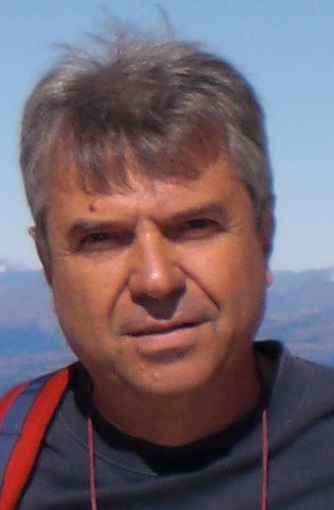
Plenary Lecture
Low head solutions for efficient hydraulic energy conversion

Professor Pietro Zunino
Department of Mechanical, Energy, Management and Transport Engineering. University of Genova,
Genova, Italy
E-mail: pietro.zunino@unige.it
Abstract: Hydraulic energy, which still accounts for more than 15 % of the world global electric energy conversion balance, remains the most diffused, in terms of energy produced, among the renewable energy sources, due to the good availability of the conversion fluid employed, the water, and the highest specific energy rate. Furthermore, considering life cycle analysis of the different renewable energy conversion systems, hydraulic energy conversion through small power plants, produces, by far, the lowest overall environmental impact. However, because the specific energy is proportional to the net head, the availability of high heads has become scarce and, nowadays, also very low heads start to be considered for hydraulic energy conversion. The main technical and economic problem related to the low specific energy associated to the low head is the necessity of delivering large flow rates for achieving a reasonable amount of power. That brings to larger dimensions for the fluid conversion machines, which result directly in larger costs. In the technical literature a large number of solutions for low head hydraulic energy conversion can be found, and they are briefly reviewed in the first part of the present lecture. Some of them, seeking the most economical conditions, results to be low efficiency conversion systems. The problem of keeping reasonable manufacturing costs with large efficiency is one of the most challenging and has important industrial implications. Recently, simplified, ultra-compact, easy to manufacture and cost saving hydraulic turbine conceptual prototypes have started to be developed by the main hydraulic turbine manufacturers. These turbine modular series are characterized by high specific speed axial propeller rotors with rotor fixed blades and a fixed distribution, which determines a unique operating point under the prescribed net head. The design objective, for a given turbine diameter and net head, is therefore to obtain the largest as possible flow rate compatible with an acceptable hydraulic efficiency. In the second part of the present lecture, an optimized design procedure able to provide the geometry of a new compact hydraulic propeller turbine for low heads is outlined. The turbine preliminary design is based upon classical criteria and on the employment of statistical correlations, which relate the main geometrical parameters to the turbine aerodynamic performance. The turbine preliminary design represents the starting point of an aerodynamic optimization procedure based on the parametric description of the turbine geometry and the construction, by means of CFD 3D simulations, of the data base of performance which is progressively updated by an artificial neural network algorithm in correspondence of new genetic algorithm generated solutions. Once the appropriate boundary conditions are assigned, the optimization process minimizes a penalty function with objectives the achievement of the targeted net head and the maximization of the internal efficiency compatible with the constraints of simplified geometry and cheapest manufacturing procedures.
Brief Biography of the Speaker: Professor of Turbomachinery since 2000 at the University of Genova, Italy. Director of the Fluid Machinery, Energy Systems and Transportation Department of University of Genova (from 2005 to 2011). Director of the Department of Mechanical, Energy, Management, Transportation Engineering of University of Genova (from 2012 to 2018). Visiting Professor at the Saint Petersburg Polytechnic University (since 2015). Visiting Professor at the Harbin Engineering University (since 2016).
Author of more than 180 scientific papers in the field of turbomachinery for power conversion and propulsion. Principal investigator in many research projects of the European Commission and with industrial companies.
University of Genova Current Teaching in the academic year 2019/2020:
- Fluid Machinery (Batchelor Degree in Mechanical Engineering)
- Turbomachinery (Master Degree in Mechanical Engineering)
- Hydro, Wind Energy and Micro Gas Turbines (Master Degree in Energy Engineering)